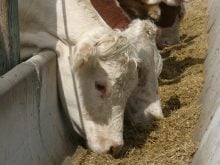MOOSE JAW, Sask. — The Saskatchewan Stock Growers Association is working on a grassland conservation policy it hopes will be flexible to meet landowner needs.
“We need to get something on the books because we know what we don’t like, but it’s harder to write things in the affirmative,” said president Jeff Yorga after circulating a draft policy at the organization’s June annual meeting.
The organization wasn’t happy with an effort by the Canadian Cattle Association, announced in 2023, to partner with Ducks Unlimited Canada and the Nature Conservancy of Canada on a grassland conservation initiative.
Read Also

Farmers asked to keep an eye out for space junk
Farmers and landowners east of Saskatoon are asked to watch for possible debris in their fields after the re-entry of a satellite in late September.
Members passed a resolution in 2024 asking CCA to put its plan on hold until it could communicate a clear direction and details.
The SSGA had already been working for several years on ways to offer term conservation easements, and just this year announced the first one. Its members were concerned they hadn’t been consulted and where the money for easements would come from.
“There were some attempts by the national organizations to kind of hijack this, and nobody was really happy with how they did it or what they did,” said Yorga.
The draft policy says private land conservation should be done in a way that minimizes negative impacts to those signing the agreements, neighbours, the industry and broader agriculture. Typically, land under easements is valued at less than similar land that is not protected in this way.
The policy said funding should include annual or short-term payments for ecological goods and services, transferable development credits, term agreements and perpetual easements and should not come from the government.
“To prevent government dollars from competing with local landowners, organizations and land trusts should never use government dollars, nor government-leveraged dollars, to purchase freehold, agricultural land,” the policy said.
It adds that government funding for incentives and business risk management programs should not be counter intuitive “nor perversive to the conservation of native prairie.”
Other clauses state landowners have the right to sell their land in whole or in part as they see fit. They also have the right to make stewardship decisions that may impact the level of ecological goods and services. Any requirement to change necessitates compensation, it said.
The draft policy is open for comment and the board will make the final decision, Yorga said.
“We’re trying to be as open and broad-based as we can so that grasslands conservation is not prescriptive,” he said.


















